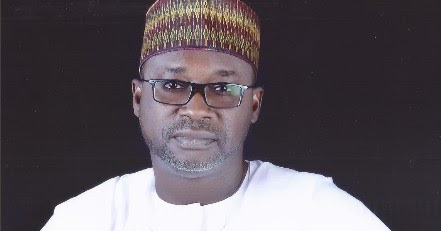Stakeholders at a workshop on Water Quality Management have advocated for Federal Government policies and more resources to ensure quality water supply and management.

They made the call at a workshop organised by the Department of Water Quality Centre and Sanitation under the Federal Ministry of Water Resources in Keffi, Nasarawa State, on Wednesday, May 8, 2019.
The workshop was organised for members of National Core Group on Water Quality (NACOWA).
The stakeholders also called on state governments to enhance the activities of the water works to measure up to national standard in water supply.
The resource person, Ajibade Olokun, a retired water, sanitation and hygiene expert, said the workshop was an intersectoral and interministerial brief expected to help in the coordination of waste water management in the country.
He said each agency/ministry represented had specific roles to play in the sector.
He said the National Bureau of Statistics (NBS), is was expected to generate data so they could give advise based on the data generated.
“Agencies like NASRDA are working on issues that relate to weather quality. So everybody has one role or the other to play. The platform allows for intersectoral coordination.
“It helps to ensure coordination and collaboration. What we expect is that the professionals should be given adequate support to do the work that they need to do.
“Both the federal and state governments should be involved in adequate and quality water supply,” he said.
Olokun identified funding as the main challenge of the sector, adding that proper management and maintenance of machines was needed as well as training.
Dr Dickson Kadiri of Water Quality Control and Sanitation Department, Federal Ministry of Water Resources (FMWR), said the programme would bridge the gap between members of national core group for water quality management.
“It is to formally educate the members to know the rules and their responsibilities as stakeholders of core groups in water quality management in Nigeria, to achieve SDG Goal 6.
“With the advent of SDG-6 in 2017, we have developed a guideline for rural drinking water management, monitoring and surveillance, and currently it is being implemented in 20 states.
We intend to scale it up to cover the entire country to address water quality management at the rural communities,” he said.
Kadiri listed cholera, typhoid and herpatities as some of the diseases associated with contaminated water.
“There are so many diseases that are linked to microbes. If the nitrate level in water is above the standard and children under six years drink such water, they could develop a disease called blue baby syndrome, which can kill.
“Water that is contaminated with mercury or lead arsenic could lead to brain damage or cardiovascular diseases,” she said.
Mrs Rakiya Bako, Deputy Director, Water Quality Surveillance (FMWR), said the workshop was to make everyone aware of what water quality and what were needed to move forward.
She condemned open defeacation, which said was the easiest means by which water could be contaminated.
“The feases of human beings carry all kinds of germs especially when the person is affected with one desease or the other, so the water contaminated with such feases will constitute health problems to people.
“Underground water can also be contaminated with metals.
“If there is deposit of lead, which is casinogenous, it is bound to contaminate the water.
” There is the risk in drinking borehole water. If the borehole is drilled close to a sceptic tank, toilet or refuse dump there is bound to be penetration of these impurities into the water,” she said.
According to Bako, water supply is the responsibility of the state, while water must be treated and tested to ensure it is safe.
By Mercy Enulue
